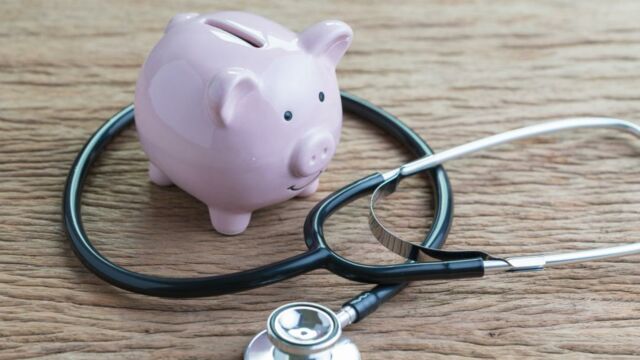Up to three million people across the UK are thought to be eligible for the Personal Independence Payment (PIP), which could give them an extra £172 a week. The money is available to those with long-term physical or mental health problems or disabilities if they have difficulty doing everyday tasks.
Discover our latest podcast
The amount you receive varies depending on your situation but the maximum payments will be going up to £172 next month after it was announced in the budget that they would increase by 10.1% in line with inflation.
Personal Independence Payments
People are eligible for PIP if they have both:
- a long-term physical or mental health condition or disability
- difficulty doing certain everyday tasks or getting around because of your condition
You can get PIP even if you’re working, have savings or are getting most other benefits.
How much you get depends on how difficult you find:
- everyday activities (‘daily living’ tasks)
- getting around (‘mobility’ tasks)
There are both standard and enhanced rates for the daily and mobility elements of the benefit. For the Mobility tasks, payments are between £24.45 - £64.50 a week, though this will rise from April to £26.90 - £71 a week. Meanwhile Daily Living payments will increase to £68.10 - £101.75 a week from the present £61.85 - £92.40. Combined, claimants could therefore be benefiting from up to an extra £172 a week from the Department for Work and Pensions (DWP) and currently 35% of people receiving the payment get the highest amount, as per gov.uk.
Read more:
⋙ Thousands to receive extra £150 winter support payment today, check if you're eligible
⋙ Millions eligible for marriage allowance can claim backdated payments of over £1200
Health and Disability White Paper: major changes to the benefits system for disabled people and people with health conditions have been announced, including
— Department for Work and Pensions (@DWPgovuk) March 16, 2023
- removing the Work Capability Assessment
- providing additional Work Coach support for those looking to move into work pic.twitter.com/1sI5j7TIJM
Top 50 medical conditions receiving PIP
If you have any of the following conditions you could be eligible for PIP, as per Manchester Evening News:
- Anxiety and depressive disorders (mixed)
- Learning disability
- Primary generalised Osteoarthritis
- Back pain
- Autism
- Inflammatory arthritis
- Fibromyalgia
- Schizophrenia
- Rheumatoid arthritis
- Cerebrovascular accident (stroke)
- Chronic obstructive pulmonary disease (COPD) chronic bronchitis/emphysema
- Multiple sclerosis
- Depressive disorder
- Bipolar affective disorder (Hypomania / Mania)
- Personality disorder
- Seizures
- ADHD / ADD
- Neurological disorders
- Back pain - Non specific (mechanical)
- Asperger syndrome
- Cerebral palsy
- Vision diseases
- Post traumatic stress disorder (PTSD)
- Osteoarthritis of Knee
- Asthma
- Psychotic disorders
- Down's syndrome
- Regional/localised Musculoskeletal disease
- Generalised musculoskeletal disease
- Generalised seizures (with status epilepticus in last 12 months)
- Psoriatic arthritis
- Anxiety disorders
- Knee disorders
- Breast cancer
- Chronic fatigue syndrome (CFS)
- Osteoarthritis of other single joint
- Head injury - Cognitive and sensorimotor impairment
- Lumbar disc lesion
- Specific learning disorder
- Genetic disorders dysplasias and malformations
- Cardiovascular disease
- Parkinson's disease
- Spine Injuries/Fracture/Dislocation
- Dementia
- Hip disorders
- Lower limb Injuries/Fracture/Dislocation
- Amputation of Lower limb(s)
- Chronic Pain syndromes
- Ankle and foot disorders
- Multiple Injuries/Fracture/Dislocation
To make a claim, you can do so by telephone on 0800 917 2222 or textphone on 0800 917 7777 (Monday to Friday, 8am to 5pm). For further information and other ways to apply go to the government website.
Read more:
⋙ Thousand claiming Universal Credit warned of major rule change, here’s how it may affect you
Sources used:
- Gov.uk 'Personal Independence Payment (PIP)'
- Manchester Evening News 'DWP to issue extra cash up to £172 a week from April on medical grounds as full list issued'
- The Independent 'The PIP changes in 2023 you need to know'















